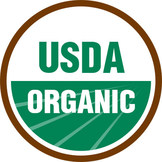
Organic Skin Care “Facts and Fiction”
By Maria Palmer, Spa Director/Esthetician
In recent years, there has been increased attention and awareness about organic living, including diet, supplements, and topical skin care. Food and cosmetic companies have made big strides in responding to new demands by consumers. Many claims are made, so it is very important to know the facts when selecting products which state “organic”.
First off, it must follow these guidelines set forth by the FDA:
To be 100% Organic, the product contains only organically produced ingredients and is permitted to display the seal.
Organic: The product contains at least 95% organically produced ingredients and is permitted to display the seal.
Made With Organic Ingredients: The product contains at least 70% organic ingredients but is not permitted to display the seal.
Less than 70% Organic Ingredients: Products are not permitted to use the term "organic" anywhere on the packaging (and cannot display the seal) but are allowed to identify organically produced items in the ingredient list.
Vegan: (Contains no animal products) Truly vegan products should not contain even beeswax or carmine, which comes from a beetle."
Natural: Can contain plant extracts and oils which are natural. “Nature-based” is a more accurate distinction as many plant-derived ingredients are synthesized.
Labels may state: “Contains Organic Ingredients”. This does not mean that the product, as a whole, is organic. It may have a few plant extracts which are.
Cosmetic Products are tested and studied for efficacy, and labeling must disclose all ingredients. It is best to select products which are proven to have clinical data and safety. Avoid products which contain ingredients which you are known to be allergic to. Avoid animal-tested products. The best test is on human skin.
Note: The ingredients are listed in the order of content. For example, Water may be the first ingredient as a base for the product, then it goes down the list.
Fillers, Preservatives, and Stabilizers: These are usually found at the bottom of the list, at a small percentage. Without a small amount of preservative, a product may produce bacteria and become stale in a short period of time. This may also cause skin breakouts. To ensure freshness, discard products after 2 years.
It should also be noted that sunscreens are designed to stay on top of the skin and not penetrate. The benefits of sun protection are proven. Molecules must be small enough to penetrate below the epidermis (upper layers of the skin) so the risk of any toxicity of these ingredients is most likely non existent.
In general, products with plant extracts and oils are tolerated well by most individuals. I personally only sell gentle, plant-based products to my clients, since our skin responds well to natural ingredients. Exfoliation products are carefully selected as they can cause some sensitivity.
I recommend using common sense when selecting products. If it causes you irritation, itching, or regular breakouts, discontinue use and try another formula. Everyone has specific skin care needs, and a cosmetic professional can direct you in a proper program. Certain products containing retinol can cause a temporary irritation. The benefits of retinol for anti-aging have been established, so sometimes it's well worth waiting a while to see if irritation diminishes.
(In future blogs, I will cover some individual ingredients which are beneficial, and certain ones which should be avoided.)
By Maria Palmer, Spa Director/Esthetician
In recent years, there has been increased attention and awareness about organic living, including diet, supplements, and topical skin care. Food and cosmetic companies have made big strides in responding to new demands by consumers. Many claims are made, so it is very important to know the facts when selecting products which state “organic”.
First off, it must follow these guidelines set forth by the FDA:
To be 100% Organic, the product contains only organically produced ingredients and is permitted to display the seal.
Organic: The product contains at least 95% organically produced ingredients and is permitted to display the seal.
Made With Organic Ingredients: The product contains at least 70% organic ingredients but is not permitted to display the seal.
Less than 70% Organic Ingredients: Products are not permitted to use the term "organic" anywhere on the packaging (and cannot display the seal) but are allowed to identify organically produced items in the ingredient list.
Vegan: (Contains no animal products) Truly vegan products should not contain even beeswax or carmine, which comes from a beetle."
Natural: Can contain plant extracts and oils which are natural. “Nature-based” is a more accurate distinction as many plant-derived ingredients are synthesized.
Labels may state: “Contains Organic Ingredients”. This does not mean that the product, as a whole, is organic. It may have a few plant extracts which are.
Cosmetic Products are tested and studied for efficacy, and labeling must disclose all ingredients. It is best to select products which are proven to have clinical data and safety. Avoid products which contain ingredients which you are known to be allergic to. Avoid animal-tested products. The best test is on human skin.
Note: The ingredients are listed in the order of content. For example, Water may be the first ingredient as a base for the product, then it goes down the list.
Fillers, Preservatives, and Stabilizers: These are usually found at the bottom of the list, at a small percentage. Without a small amount of preservative, a product may produce bacteria and become stale in a short period of time. This may also cause skin breakouts. To ensure freshness, discard products after 2 years.
It should also be noted that sunscreens are designed to stay on top of the skin and not penetrate. The benefits of sun protection are proven. Molecules must be small enough to penetrate below the epidermis (upper layers of the skin) so the risk of any toxicity of these ingredients is most likely non existent.
In general, products with plant extracts and oils are tolerated well by most individuals. I personally only sell gentle, plant-based products to my clients, since our skin responds well to natural ingredients. Exfoliation products are carefully selected as they can cause some sensitivity.
I recommend using common sense when selecting products. If it causes you irritation, itching, or regular breakouts, discontinue use and try another formula. Everyone has specific skin care needs, and a cosmetic professional can direct you in a proper program. Certain products containing retinol can cause a temporary irritation. The benefits of retinol for anti-aging have been established, so sometimes it's well worth waiting a while to see if irritation diminishes.
(In future blogs, I will cover some individual ingredients which are beneficial, and certain ones which should be avoided.)


 RSS Feed
RSS Feed